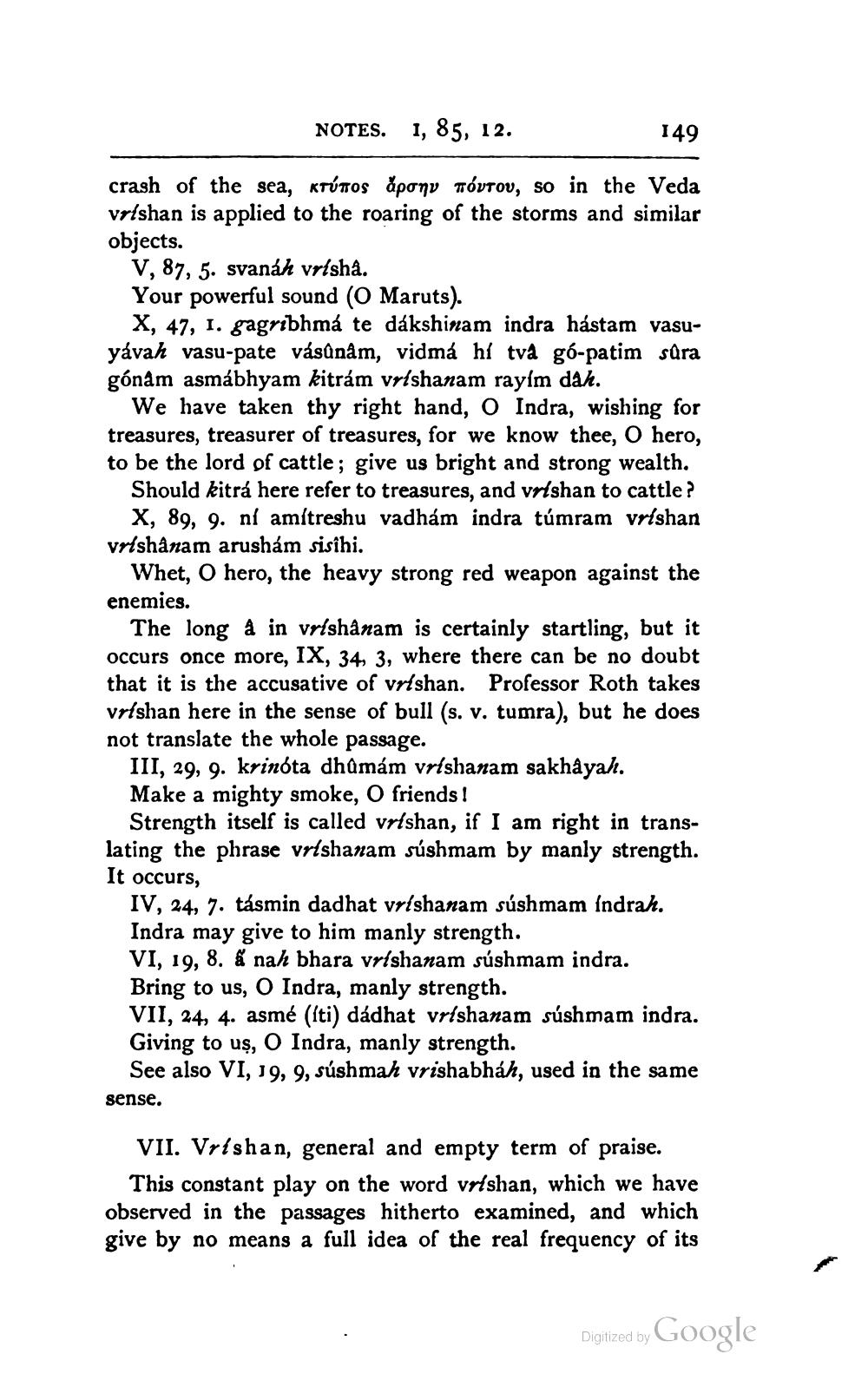________________
NOTES. 1, 85, 12.
149
crash of the sea, κτύπος άρσης πόντου, so in the Veda vrlshan is applied to the roaring of the storms and similar objects.
V, 87, 5. svanáh vrlsha. Your powerful sound (O Maruts).
X, 47, 1. gagribhmá te dákshinam indra hástam vasuyávah vasu-pate vásûnam, vidmá hí tvà gó-patim süra gónam asmábhyam kitrám vrlshanam rayim dah.
We have taken thy right hand, O Indra, wishing for treasures, treasurer of treasures, for we know thee, O hero, to be the lord of cattle; give us bright and strong wealth.
Should kitrá here refer to treasures, and vrlshan to cattle?
X, 89, 9. ní amitreshu vadham indra túmram vrlshan vrlshanam arusham sisihi.
Whet, О hero, the heavy strong red weapon against the enemies.
The long à in vrlshanam is certainly startling, but it occurs once more, IX, 34, 3, where there can be no doubt that it is the accusative of vrlshan. Professor Roth takes vrlshan here in the sense of bull (s. v. tumra), but he does not translate the whole passage.
III, 29, 9. krinóta dhůmám vrlshanam sakhayah. Make a mighty smoke, O friends!
Strength itself is called vrlshan, if I am right in translating the phrase vrlshanam súshmam by manly strength. It occurs,
IV, 24, 7. tásmin dadhat vrlshanam súshmam indrah. Indra may give to him manly strength. VI, 19, 8. & nah bhara vrlshanam súshmam indra. Bring to us, O Indra, manly strength. VII, 24, 4. asmé (Iti) dádhat vrlshanam súshmam indra. Giving to us, O Indra, manly strength.
See also VI, 19, 9, súshmah vrishabháh, used in the same sense.
VII. Vrlshan, general and empty term of praise.
This constant play on the word vrishan, which we have observed in the passages hitherto examined, and which give by no means a full idea of the real frequency of its
Digitized by Google




